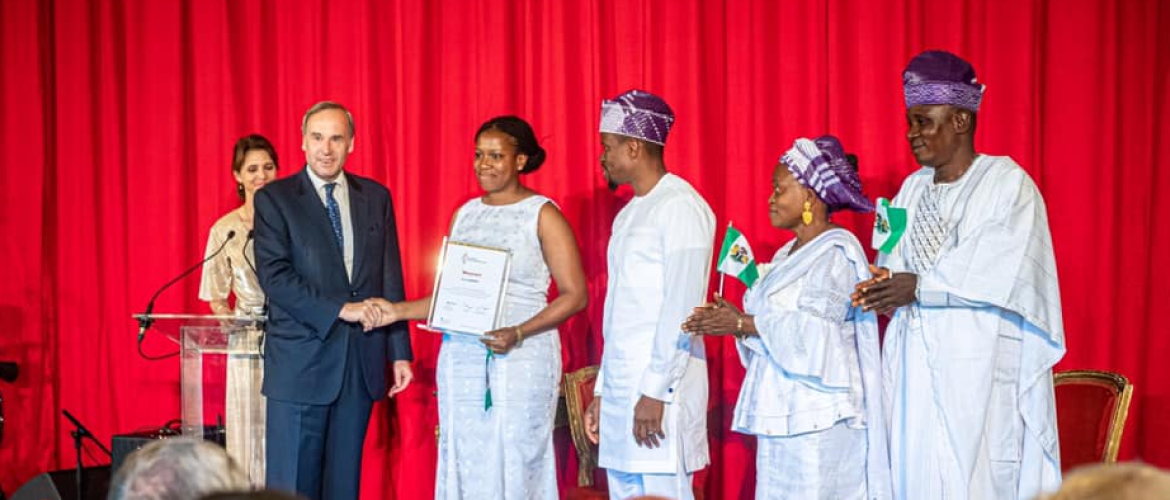On 12 June Wecyclers, a waste management start-up in Lagos (Nigeria), received the King Baudouin African Development Prize, in the presence of HM King Philippe and HM Queen Mathilde. The Prize recognises ongoing efforts in the area of innovation made by Wecyclers, which sees waste collection not merely as an end in itself, but also as a way of bringing about social development in the poorest neighbourhoods of Lagos.
In a city with millions of inhabitants like Lagos, efforts to combat the waste mountain, which continues to grow by 15,000 tonnes every day, require an innovative approach. Traditional waste collections by local authorities are inadequate, particularly in poorer neighbourhoods, and residents have no concrete incentive to collect and hand in their waste.
Setting out from the insight that plastic waste has value as a raw material, Wecyclers has developed a business model in which part of that value goes directly to the residents who collect the waste. Wecyclers employees responsible for waste collection go out into residential neighbourhoods in small, manoeuvrable vans, and local residents who give them empty plastic bottles (and boxes and glass bottles) are given savings points (which they can exchange for food products or household appliances) or cash. This very tangible increase in their income encourages them to overcome prejudices against ‘dirty waste’ and carry on collecting it. Almost 20,000 households are already participating in the scheme.
Recently Wecyclers has developed a new variant: paying school fees in waste Parents can pay (part of) their school fees by handing in plastic. The payment made for the plastic by Wecyclers goes to the school. This model is being piloted with a primary school, and it is intended to roll it out to many more schools in order to include families who are not reached by other waste processing networks.
The waste processing company was set up by Bilikiss Adebiyi and is now led by Olawale Adebiyi – they are brother and sister – after both returned to their native country after studying in the US. The waste processing business is growing steadily. It now employs more than 200 people, 60% of whom are women: after the plastic bottles are collected they are sorted, wrappers are removed and they are compressed so that they can be sold on as a raw material.
Through its African Development Prize the King Baudouin Foundation mainly wishes to recognise the innovative dynamism that Wecyclers has created: this goes beyond the amount of waste collected; it is about promoting the attitude that processing waste offers benefits and opportunities and makes economic sense too. Whether they are partners or even competitors, all those who get hold of these ideas will contribute towards reducing the size of the waste mountain and improving the welfare of local residents.
For Wecyclers, giving back to the community is in its DNA. We want to extend our work to other neighbourhoods. In the medium term we want to be big enough to build our own recycling factory. For Wecyclers, more growth means the ability to give back more to the community”, says Olawale Adebiyi, CEO of Wecyclers.
With the 200,000 euro prize, Wecyclers will be able to scale up its model and enlarge its footprint, with plans for expansion within Lagos itself and also into other Nigerian cities and neighbouring countries. The Prize also provides access to a wide network of potential partners in Europe and the United States, who will be able to support them in their development. King Baudouin Foundation US is organising a business tour in the United States this autumn, with a large number of professional contacts in New York, Washington and Silicon Valley.
Based on current growth projections, Wecyclers aims to reach 500,000 households by 2023. When the company was founded, the Tony Elumelu Foundation, Africa’s largest philanthropic foundation which invests in supporting start-ups, proved to be a well-motivated partner.
Posted: July 5, 2017

